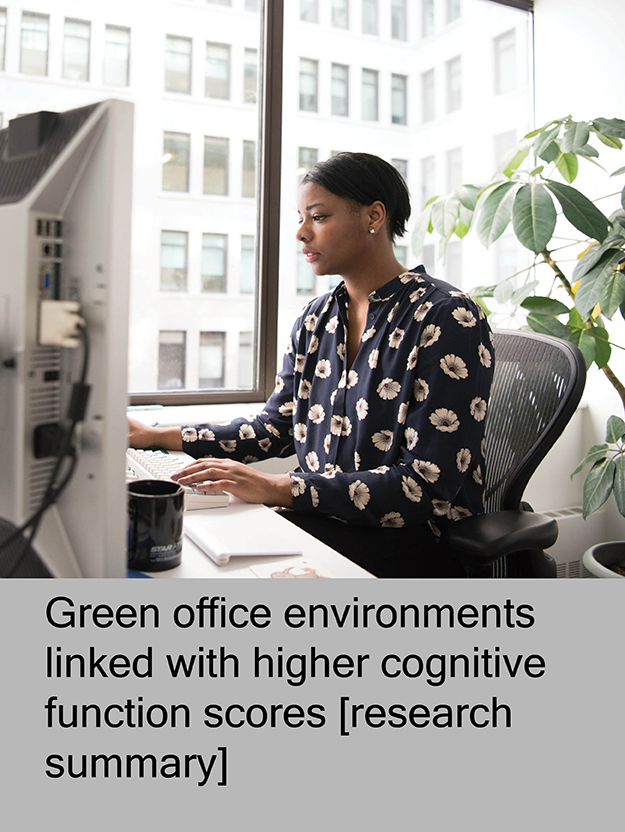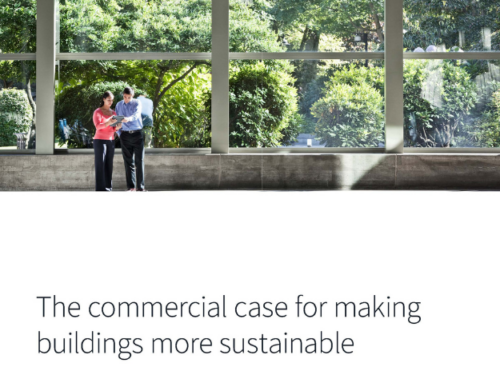Green Office Environments Linked with Higher Cognitive Function Scores

Boston, MA – People who work in well-ventilated oces with below-average levels of indoor pollutants and carbon dioxide (CO2) have signicantly higher cognitive functioning scores—in crucial areas such as responding to a crisis or developing strategy—than those who work in oces with typical levels, according to a new study from the Harvard T.H. Chan School of Public Health’s Center for Health and the Global Environment, SUNY Upstate Medical University, and Syracuse University. The researchers looked at people’s experiences in “green” vs. “non-green” buildings in a double-blind study, in which both the participants and the analysts were blinded to test conditions to avoid biased results. The ndings suggest that the indoor environments in which many people work daily could be adversely affecting cognitive function—and that, conversely, improved air quality could greatly increase the cognitive function performance of workers. The study was published October 26, 2015 in Environmental Health Perspectives.“We have been ignoring the 90%. We spend 90% of our time indoors and 90% of the cost of a building are the occupants, yet indoor environmental quality and its impact on health and productivity are often an afterthought,” said Joseph Allen, assistant professor of exposure assessment science, director of the Healthy Buildings Program at the Harvard Center for Health and the Global Environment, and lead author of the study. “These results suggest that even modest improvements to indoor environmental quality may have a profound impact on the decision-making performance of workers.”





